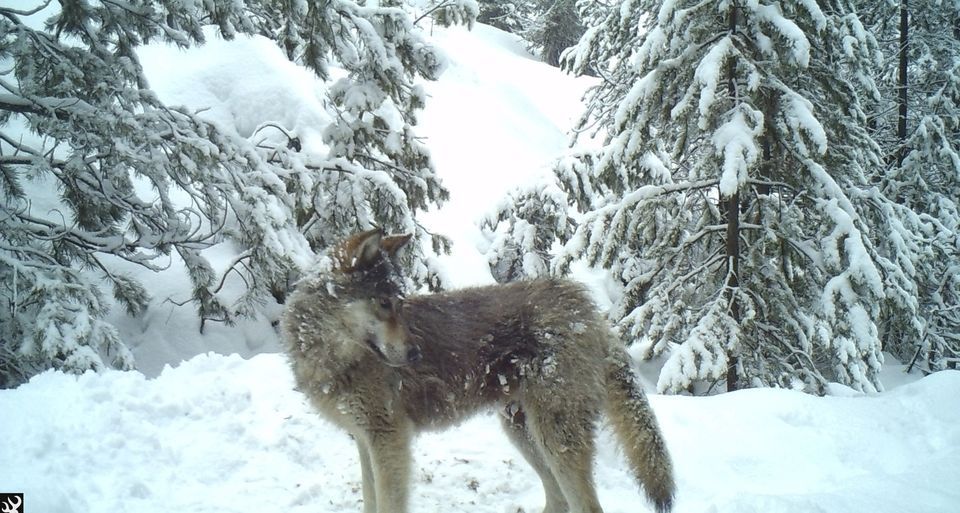TWISP —
When John Danielson, a retired officer for the Washington Department of
Fish and Wildlife, decided it was time to get rid of duck carcasses
from hunting season, he figured he’d kill two birds with one stone, so
to speak.
So he drove up
Highway 20 to the Loup Loup Summit, snowshoed into the woods, and dumped
the birds in a pile. Then he set up a trail camera to see what might be
attracted to this cache of dead ducks.
“I
was thinking coyotes, maybe a bobcat,” he said. “It was really nice
when I got home and found out I had a bunch of wolf pictures.”
Danielson said when he went to
retrieve the camera, there was fresh snow on top of the pile of ducks.
But the wolves not only found them, they also dug them up and rolled in
them, he said.
He sent the best photos to a Fish and Wildlife biologist in Omak, where Danielson also lives.
The photos provide more information on the territory and range of Washington’s newest wolf pack, named the Loup Loup Pack.
U.S. Fish and Wildlife Service officials in November announced the new pack, with two to six members.
Remote
cameras this winter also captured images of three sets of wolf tracks
belonging to members of the Lookout Pack — Washington’s first confirmed
wolf pack near Twisp that has struggled to survive losses from poaching.
Fish
and Wildlife biologist Scott Fitkin said it’s good news that Twisp-area
pack has at least three members. He also has unconfirmed reports from
citizens who said they’ve seen four wolves in the Lookout Pack.
Biologists
will have to determine in the next few months if that pack is strong
enough to have a breeding pair, which is one of the requirements for
recovery. The agency hasn’t been able to find the pack’s alpha female,
which had a radio collar that stopped transmitting in October.
Biologists don’t know if the collar failed, or if she was poached
or died.
“We probably won’t know much more until we get to spring, and have a little more access,” Fitkin added.
He said none of the Lookout or Loup Loup packs’ wolves currently have radio collars, which makes them more difficult to track.
Biologists
have also received scattered but unconfirmed reports of wolves in
different parts of Chelan County, said Fish and Wildlife biologist David
Volsen. But there have been no confirmed sightings of the Wenatchee
Pack for the last few years, he said.
He
said the Wenatchee Pack is now considered inactive, and may be taken
off the list of Washington’s packs when the statewide wolf status report
is updated in the spring.
source
source



No comments:
Post a Comment